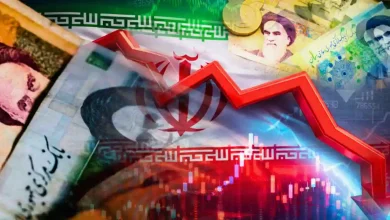
IMF Rejects Pakistan’s Crypto Energy Plan: Pakistan’s proposal to allocate 2,000 MW for crypto mining with subsidized rates was denied by the IMF.
Govt Faces Pushback on Energy Subsidies: Talks continue with global bodies as Pakistan works to revise its energy policy amid subsidy and theft concerns.
The International Monetary Fund (IMF) rejected Pakistan’s proposal to offer subsidized electricity rates to crypto mining, data centres, and heavy industries on July 3. Secretary Power Dr. Fakhray Alam Irfan informed the Senate Standing Committee on Power that although surplus electricity is available during winter, the IMF strictly stands against it.
Pakistan’s 2,000 MW Crypto Mining Plan Gets Rejected
In a session with the Senate Standing Committee on Power, chaired by Senator Mohsin Aziz, the ongoing discussions with the IMF on crypto mining were outlined. IMF cited concerns about market distortions before rejecting the proposal to offer subsidized rates to energy-intensive industries such as crypto mining, data centres, and metal industries.
Pakistan’s plan to allocate 2,000 megawatts for crypto mining, aiming at interest foreign investments, has now been rejected by the IMF. “As of now, the IMF has not agreed,” said Secretary Irfan. However, ongoing discussions suggest that Pakistan is committed to refining its energy plan to align with global standards and recommendations.
- Also Read :
- Crypto News: MiCA-Compliant EURAU Stablecoin Approved as AllUnity Secures BaFin License
- ,
Pakistan in Talks With International Institutions
Dr. Irfan confirmed that the government is still in talks with international institutions to redefine its power subsidiary plan after the IMF rejected the proposal. The committee also discussed the technological solutions aimed at combating electricity theft.
Pakistan government’s recent agreement with scheduled banks to reduce the circular debt stock of Rs. 1.275 trillion was also discussed during the meeting. Senator Shibli Faraz criticized the deal, accusing the banks of being “forced at gunpoint” to offer loans.
Power Theft in Pakistan
The Secretary Power added that 58% of users pay a subsidized rate of Rs. 10 per unit, which is a lot less than the government standard price. The government is planning to allocate Rs. 250 billion in subsidies this year and expand anti-theft technology in he country. The committee has directed the power division to submit a comprehensive answer to various issues at the next meeting.
Never Miss a Beat in the Crypto World!
Stay ahead with breaking news, expert analysis, and real-time updates on the latest trends in Bitcoin, altcoins, DeFi, NFTs, and more.
FAQs
Pakistan’s 2,000 MW crypto mining plan aimed to allocate surplus electricity, especially during winter, to energy-intensive industries like crypto mining, data centers, and metal industries. Its goal was to attract foreign investment, monetize underutilized power, and create high-tech jobs, turning surplus energy into a revenue-generating asset.
The IMF’s rejection creates significant hurdles for Pakistan’s crypto ambitions, particularly regarding large-scale, subsidized crypto mining operations. It means Pakistan must refine its energy plan to align with global standards and avoid market distortions, potentially slowing down its aim to become a regional crypto and AI hub.
Widespread electricity theft in Pakistan poses a significant challenge to the feasibility of large-scale crypto mining. It contributes to financial losses for utilities, potentially leading to higher tariffs for honest consumers and instability in the power grid. Such issues make it difficult to guarantee a stable and cost-effective power supply for energy-intensive operations like crypto mining.
Trust with CoinPedia:
CoinPedia has been delivering accurate and timely cryptocurrency and blockchain updates since 2017. All content is created by our expert panel of analysts and journalists, following strict Editorial Guidelines based on E-E-A-T (Experience, Expertise, Authoritativeness, Trustworthiness). Every article is fact-checked against reputable sources to ensure accuracy, transparency, and reliability. Our review policy guarantees unbiased evaluations when recommending exchanges, platforms, or tools. We strive to provide timely updates about everything crypto & blockchain, right from startups to industry majors.
Investment Disclaimer:
All opinions and insights shared represent the author's own views on current market conditions. Please do your own research before making investment decisions. Neither the writer nor the publication assumes responsibility for your financial choices.
Sponsored and Advertisements:
Sponsored content and affiliate links may appear on our site. Advertisements are marked clearly, and our editorial content remains entirely independent from our ad partners.








